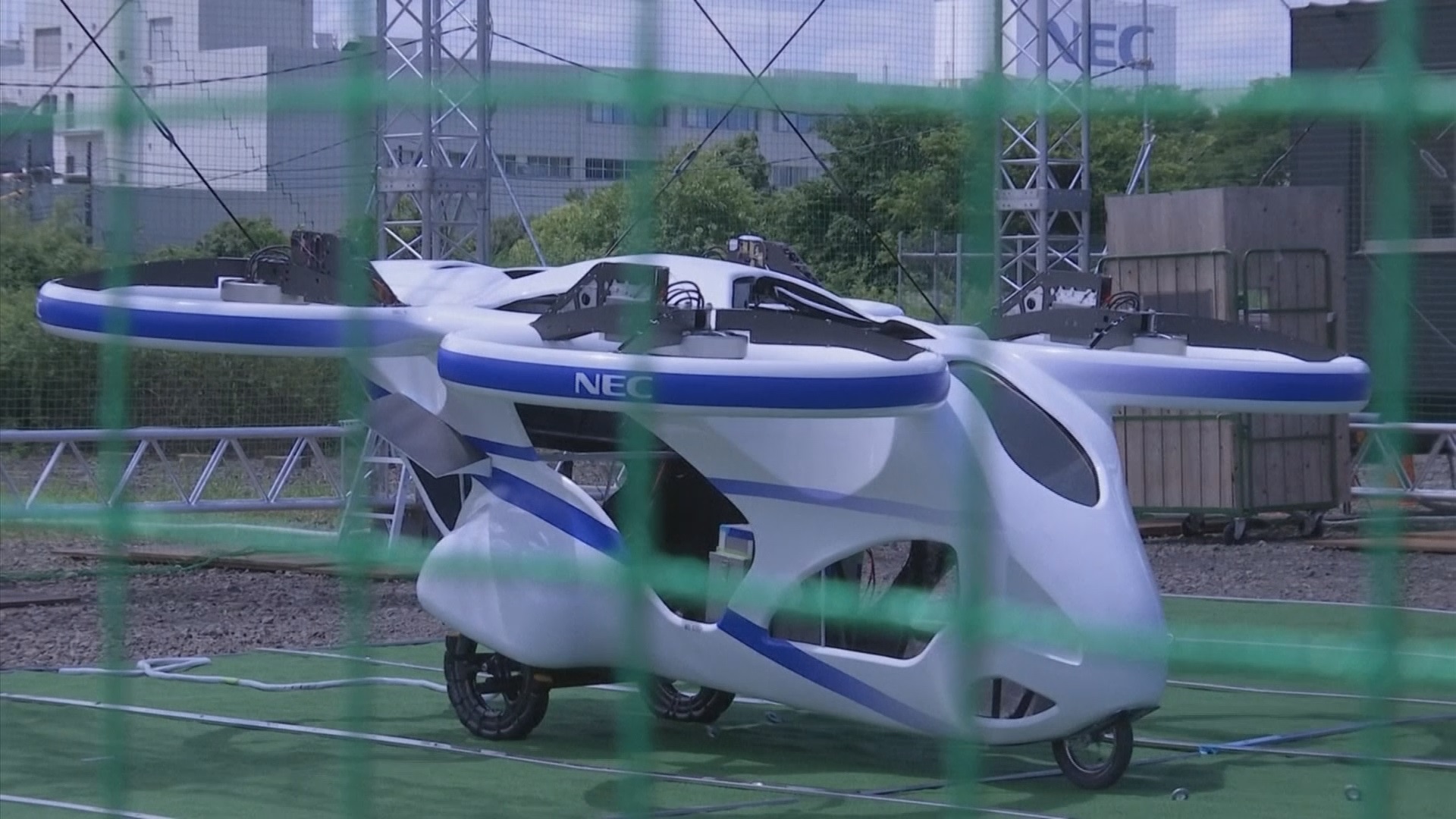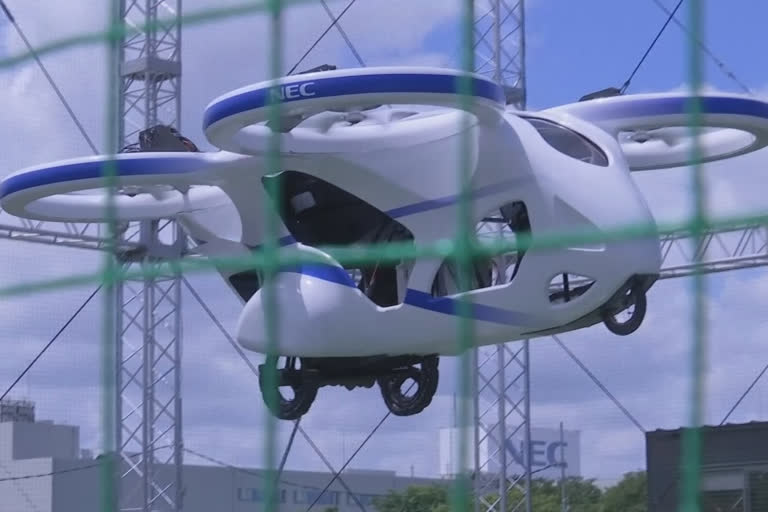Chiba: The race to build a practical and safe flying car is on in earnest, as Japanese electronics giant NEC and Cartivator on Monday unveiled their prototype in Japan's Chiba. The "flying car" has four propellers and is being tested inside a cage as a safety precaution.
NEC and Cartivator invited the public to observe its drone-like "flying car" prototype, which can hover at three meters.
NEC is among the 80 companies who sponsored for Cartivator's flying car, which is also backed by automaker Toyota and video game company Bandai Namco Holdings. The company aims to deliver a seamless transition from driving to flight.
The company believes that its a revolution and the Japanese Government would have a role in bringing it out. It has a goal of having people zipping around in flying cars by the 2030s.
The firm developed a huge test course for flying cars in an area devastated by the 2011 tsunami, quake and nuclear disasters in Fukushima in northeastern Japan.
In 2017, the test didn't fetch proper result as one of the flying cars developed by Cartivator crashed quickly during a similar demonstration.
But Cartivator's CEO Tomohiro Fukuzawa said that things have been improving since. "I think, in the future, the market will be the almost same size with automobile. But it grows gradually, so not only Japan but also global markets we are looking now," he added.

Flying car project has many challenges to face regarding safety in making an urban mobility people's lives and longevity of the battery according to the distance.
Officials say their flying car is designed for driverless flights for deliveries.
NEC vice president Norihiko Ishiguro said, "The Japanese government's roadmap sets out a plan to begin to transport goods in 2023, and for people to start to travel this way by the late 2020s. The roadmap shows that, at first, the flying cars will begin in rural areas, and they will start to appear in cities in the 2030s. At the same time, we would like to create a management infrastructure for safe and secure operations, so we are ready for things such as transporting goods and transporting people."
The company has bold ambitions for flying cars to be zipping around cities by the 2030s.
Often called EVtol, for "electric vertical takeoff and landing" aircraft, a flying car is defined as an electric aircraft, or hybrid electric, with driverless capabilities.
Flying car concepts promise to be better than helicopters, which are expensive to maintain, noisy to fly and require trained pilots. They are also being touted as useful for disaster relief.
The US ride-sharing and transport app Uber is planning demonstrations of its prototypes in 2020, intending to start commercial operations in 2023. Uber has chosen Dallas, Los Angeles, and Melbourne as test sites for what it calls "Uber Air" flights.
Dubai is also in the race that has been aggressive about pursuing flying cars.
Japanese officials believe that their country has a good chance of emerging as a world leader in this field.
But for now, flying cars have really to take off.
Read also: Ruckus in Pak parl as Imran Khan skips crucial meet



